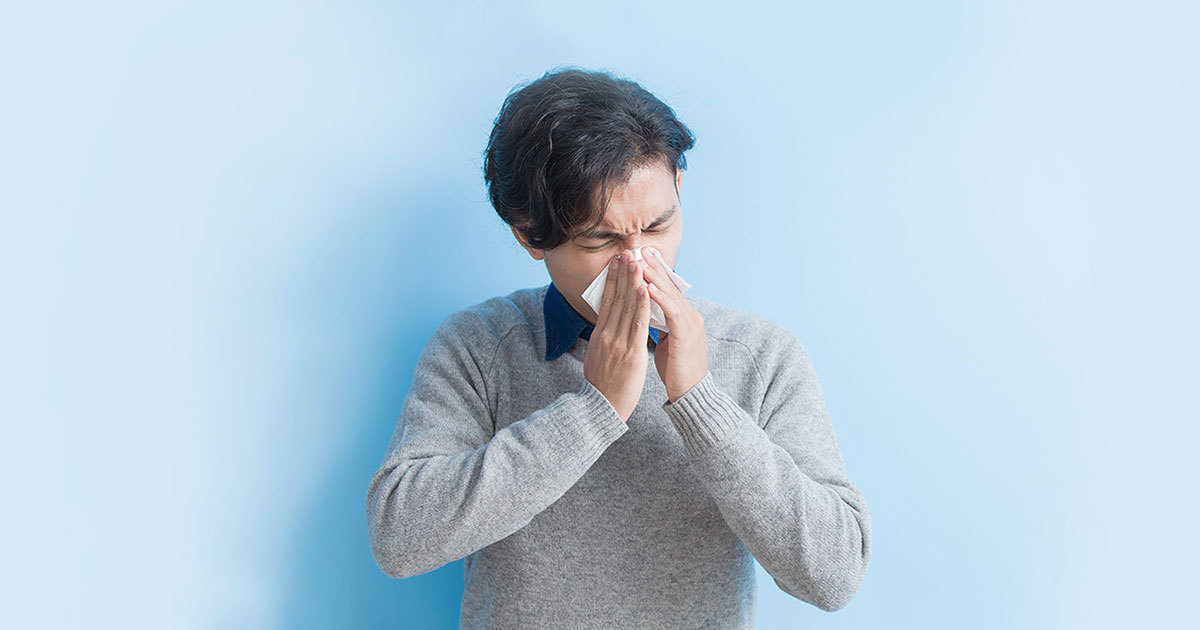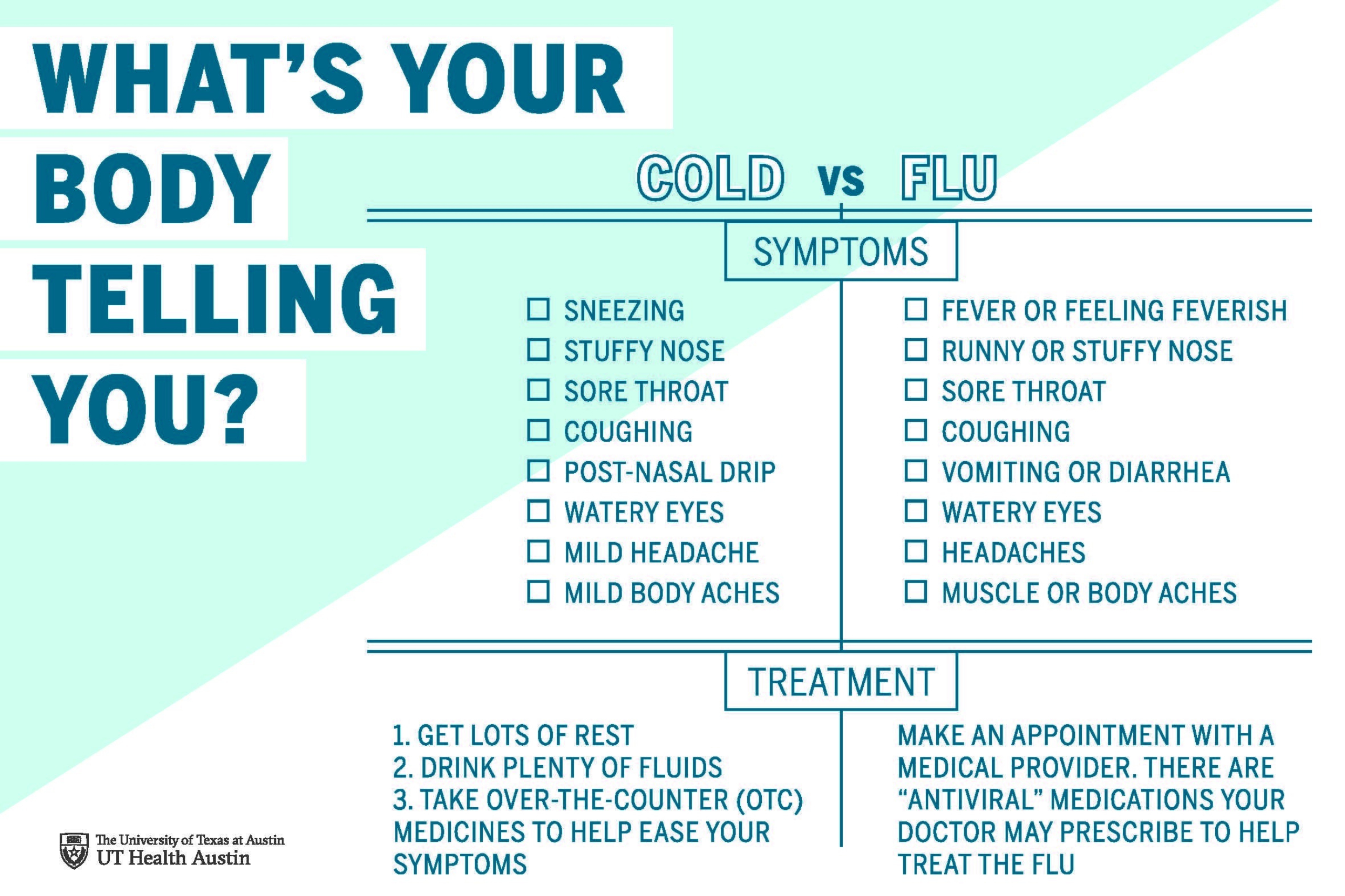Sneezing Through the Seasons?
Know the difference between a cold and the flu

Sneezing, coughing, and fever often accompany both a cold and the flu, making it sometimes difficult to distinguish between the two. So, how do you know when it’s a cold and when it’s the flu, and when to see a doctor and when to wait it out? The simple answer is that, although both are respiratory illnesses, they are caused by different kinds of viruses that exhibit distinct symptoms and linger for varying amounts of time.
What is a cold?
A cold is a viral condition that you get after you are exposed to the virus usually through someone who already has it. Colds can last up to a week and symptoms are milder than the flu. Often beginning with a sore throat, which lasts a few days, then giving way to nasal symptoms and ending with a mild cough. A mild fever is often more common in children with a cold than adults.
Cold Symptoms
- May last 7-10 days
- Contagious the first 2-3 days
- Mild fever, more often in children
- Sore throat
- Runny nose and congestion
- Cough
If you think you have a cold:
Stay home for the first few days. You do not want to pass the virus on to friends or colleagues. Get plenty of rest and stay hydrated. If your cold symptoms do not improve within a week, see your health care provider. Chances are you may have developed a bacterial infection, which would require antibiotics or you may actually be suffering from winter allergies.
What is the flu?
The flu is an extremely contagious respiratory condition caused by influenza A or B viruses. The flu is much more severe than a cold and comes on very quickly. Complications from the flu, such as pneumonia can be life-threatening, especially in young children, the elderly and people who have existing heart and/or lung conditions.
Flu Symptoms
Will gradually improve over 2-5 days, although you may feel fatigued and weak for 10-14 days.
- Highly contagious
- Fever (100-102 degrees Fahrenheit) or feeling feverish
- Headache
- Muscle aches, pains, fatigue
- Severe cough
If you think you have the flu:
Like a cold, the flu is very contagious, therefore, you should stay home and schedule a visit with your health care provider right away. They can run a quick test to determine whether you have the flu virus. If so, then your provider can prescribe antiviral medications that may shorten the length of your illness by 24-48 hours.

Prevention is key.
Wash your hands. Colds and flu are highly contagious and can spread quickly. Frequent hand–washing is your best defense against germs, giving you a better chance of staying healthy during cold and flu season. Get a flu shot. Flu shots are recommended for individuals six months of age and older each flu season. Those with compromised immune systems, chronic heart and lung conditions and adults over the age of 65 are strongly encouraged to get immunized. The flu vaccine takes 2-4 weeks to become effective.
We can help.
According to the Centers for Disease Control, U.S. workers lose 111 million work days and $7 billion in lost productivity each year due to health-related issues. Combined with the $4.6 billion in annual costs directly related to hospital and doctor visits, and the personal discomfort and inconvenience of getting sick and missing work, it just makes sense for everyone to do their best to stay healthy during cold and flu season.
At UT Health Austin’s Walk-in Clinic, our team provides solutions for maintaining a healthy workforce. The team provides flu shots, annual exams, screenings, and can treat colds and flu.
To learn more about what the Walk-In Clinic can do for you, call 1-833-UT-CARES (1-833-882-2737) or visit here.